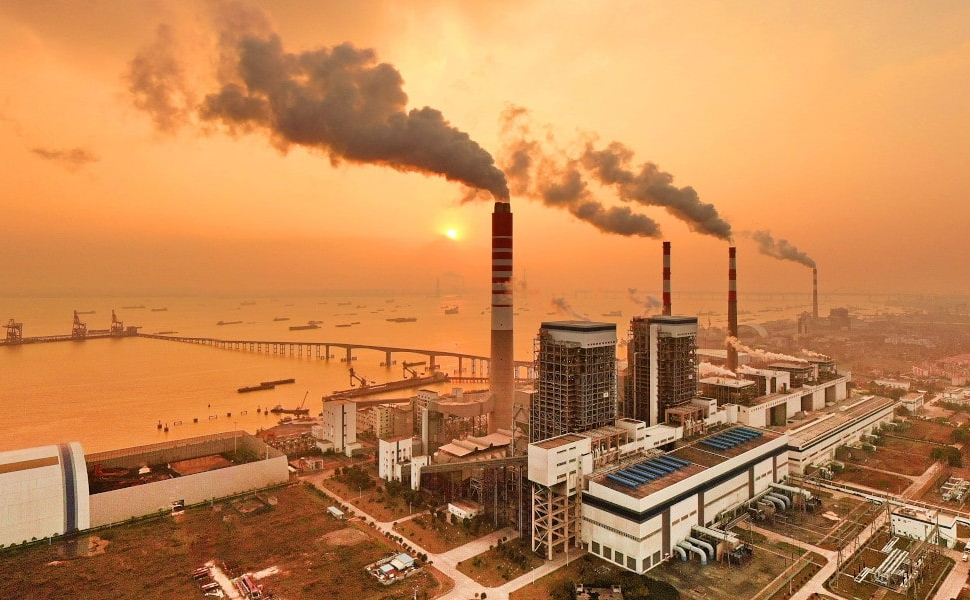Proposal to charge environmental protection to facilities and enterprises emitting gas
The Ministry of Finance is collecting critiques on the draft Decree regulating environmental protection charges for emissions.
Charging environmental protection from factories and enterprises will contribute to overcoming air pollution.
This is new revenue, and it is expected that shortly, only fee payers will be emission-producing establishments such as iron and steel production enterprises, metallurgy and inorganic chemical production; inorganic fertilisers; pesticides, oil refinery; recycling and treatment of domestic waste, industrial waste, and hazardous waste; thermal; cement production...
Provision of specific fee levels:
Implementing environmental protection fees for facilities and companies that emit pollutants (3 million VND/year) is estimated to assist in enhancing the state budget by around 1,200 billion VND/year. This money helps to combat local air pollution caused by waste sources...
The Ministry of Finance has submitted a proposal to the Government for a fee for environmental protection for emissions based on the Law on Charges. The fee consists of a fixed fee for facilities discharging emissions, covering treatment costs for substances outside the four substances (Dust total, NOx, SOx, CO), and additional variable fees for facilities monitoring emissions.
The fixed fee for facilities discharging emissions is 3,000,000 VND/year, while the variable fee is 500-800 VND/ton for four environmental pollutants, including total dust, NOx, SOx and CO.
The draft mandates that facilities with automatic, continuous, and quarterly emission monitoring must submit an Environmental Protection fee declaration for the previous quarter's emissions by the 10th day of the first month of the next quarter. According to the notice, late payment of fees will result in late payment interest, according to the Law on Tax Administration.
Fee payers pay fees in one of the following forms:
- Pay fees in a non-cash form into a specialised fee collection account of the fee collection organisation opened at a credit institution.
- Pay the fee to the fee account waiting for budget payment of the fee collection organisation opened at the State Treasury.
- Pay fees in cash to the collection organisation.
Encourage establishments to invest in technology to reduce emissions that cause environmental pollution:
The regulation of environmental protection fees for emissions will encourage waste dischargers to invest in technology to reduce emissions that cause environmental pollution under the Party and Government's policies on environmental protection.
Regulation of environmental protection costs for emissions comparable to those now specified in Decree No. 53/2020/ND-CP would improve enforcement efficiency. Public service, conserving human resources, and establishing favourable conditions for relevant organisations and people in collecting and paying environmental protection charges for emissions.
Determining the volume of emissions based on monitoring data ensures fairness between businesses. It promotes the role of people in monitoring the process of fulfilling the obligation to pay the fees of polluting organisations. Environment. Thereby, people can detect and report violations and negative actions to competent state agencies and promptly handle arising issues related to the lives of people where waste discharge activities pollute the air environment.
According to a draft Decree from the Ministry of Finance, along with socioeconomic growth, the air quality in major cities, industrial parks, and artisan villages is deteriorating, causing harm. Serious harm to public health, economic devastation, and environmental hazards.
Currently, air pollution, especially in large cities, is rising. At times, air pollution quality is at alarming levels. One of the causes of this situation is the exhaust emission activities of waste discharge facilities and vehicles.
The country currently has about 5.1 million cars and many motorbikes in circulation. There are dozens of complexes which concentrate many projects and types of bauxite, iron and steel production, and chemical refining. Oil, power centres, and daily discharge large volumes of industrial emissions.
According to the Prime Minister's Decision No. 1788/QD-TTg, about 120,000 industrial production facilities, including 138, create severe environmental pollution, authorizing a strategy to address facilities that generate severe environmental pollution adequately. Serious environmental degradation has yet to be adequately addressed by 2020.
Simultaneously, over 110,000 construction firms are building houses, apartment complexes, new metropolitan areas, bridges, and highways around the country and extracting and transporting construction materials and garbage. These operations produce large industrial pollutants and dust, which harm the environment.
Meanwhile, most organisations and individuals releasing garbage that causes air pollution must be aware of their environmental duties.
As a result, the Ministry of Finance believes that the study and development of a Decree on environmental protection fees for emissions is required to institutionalise the policies of the Party and the Government, perfect the legal system of fees, and comply with Ministry of Finance regulations. Under realistic constraints and with the increasingly rising environmental consciousness of organisations and individuals releasing garbage...
Source: congnghiepmoitruong.vn














